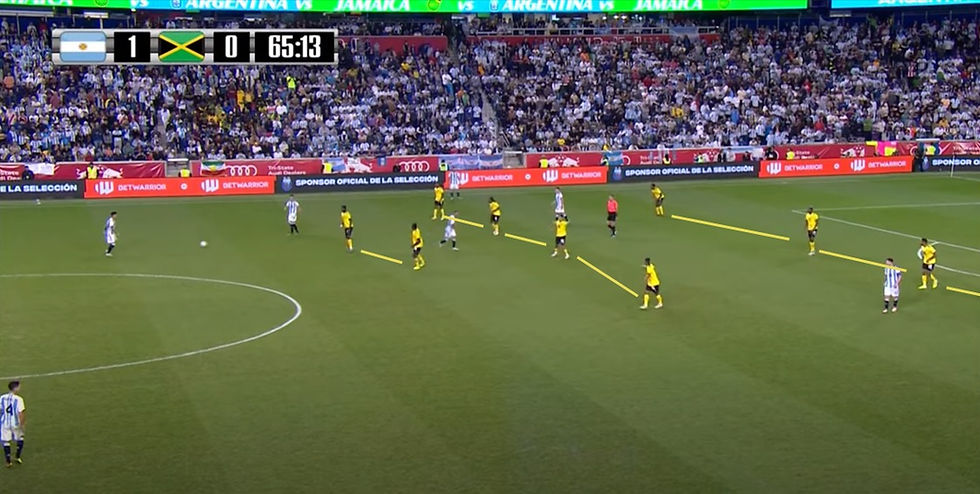Control vs Individuality in Modern Football
- All Angles Football -
- May 7, 2024
- 3 min read
Updated: May 8, 2024

In February, Versus published an article discussing the aim and need for perfection and control in football today, discussing this at both at the professional and academy level. Football is most definitely facing an era of control, and this is partly what is leading to the argument of individuality being killed.
At the core of this argument and its potential answer(s) is the discussion on what purpose football serves and for who. Is it that fans want their team to win, their favorite player to be successful or do they want to be entertained? Players, coaches, and team staff want to win before anything else. In football, entertainment versus success are 2 pillars that can, but don’t always work hand in hand. This conflict is what we are seeing more and more pushing the argument that individuality is being killed. As the game, technology and education evolves, the emphasis for control on the field has only and seemingly (with concern) will only increase. Yes, the game has evolved due to this, but it must be recalled when speaking on individuality and entertainment that players want to win, and it is a team sport. Again, this is not to say that individuality is not good or necessary, because it is. The game needs to preserve and appreciate these individual talents who will take on high risk high reward actions while also balancing the evolution in technology, tactics, and education in the game.
A key argument in this is, when individuality should be emphasized and encouraged and the need for control to be diminished and given up. The potential answer? In youth development. The reality is that elite professional football is at a level where competition is very tense and both the technical and tactical level are extremely high. Therefore, at this level it is expected that the need for control and more tactical/strategic planning will be present and arguably rightfully so. Especially given advances in data and video analysis, pre- and post-match team and opposition analysis provide direction for game models and solutions in-game, leading to this higher level of control and planning.
However, because the level of competition is so high, again individuality is important and necessary at such an intense competitive level where a game can be decided in the most special/unexpected actions in a given moment. This is why the key to individuality is arguably in youth development before the professional elite level. The issue of team-based data and video analysis and individual at too large of a quantity, at the youth level, is simply that the player’s creativity and problem solving is limited. Players are not given the freedom (as in the streets) at a young age to make mistakes, solve problems in-game and develop solutions on their own (which is what promotes and develops this flair and individuality). There is no clearly defined age or stage of development to introduce tactical principles to youth players, however many argue/suggest around 13 to 14 years old are when specializing in position(s) and starting to integrate detailed tactical principles should be encouraged. The issue today is that before these teenage years, at younger ages, when players are being told specific in-game solutions and being flooded with too many tactical details and principles at too young of an age, their problem solving, creativity and improvisation as said, is killed.
The reality is that this is cause for concern because as analytics grows and is integrated into academy levels more and more, if players are flooded with too many tactical details, and too much analysis at too young of an age with a focus on winning versus development, individuality will only be killed more than it is now. Ideally and theoretically, if players are left to develop solutions, and improvise with creativity on their own, this could and would still be present, especially in tense moments at the highest level of the game. Even if there is an increase in the desire for control and planning when preparing games, individuality will be more present, especially in the right moments when a player faces the need to problem solve and improvise. Football is fluid and unpredictable, so regardless of a game model, there will be many moments that require this individuality and creativity to solve problems but if this is killed from a young age in the development stage, it won’t exist at the highest level as the number of solutions players will have will be limited. Essentially to summarize the main point is that while control and tactical analysis may be considered important for success at the elite level, this should not occur at the expense of developing individuality and creativity in the game.
The link to the Versus article: https://www.versus.uk.com/articles/footballs-pursuit-of-perfection-is-killing-individuality




Commentaires